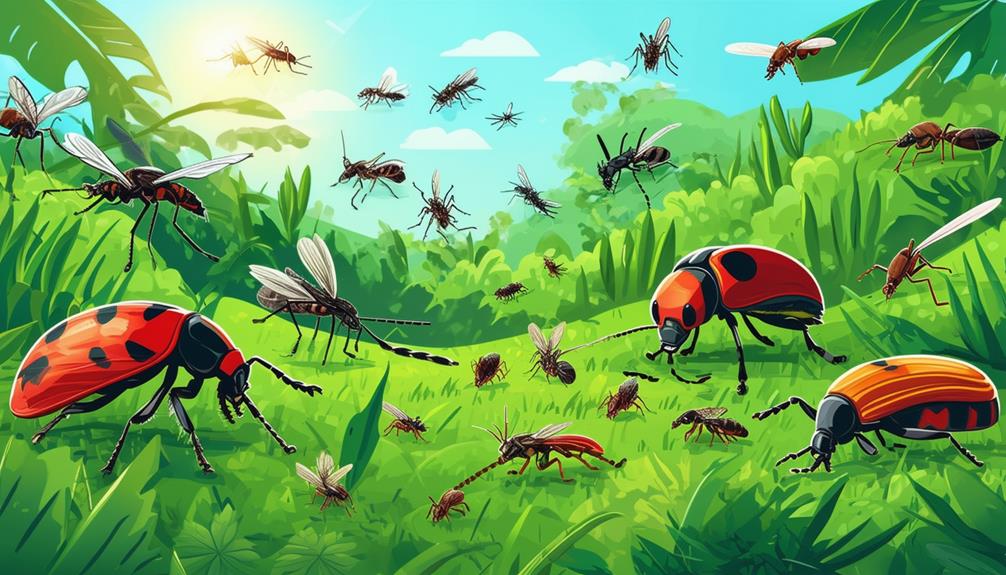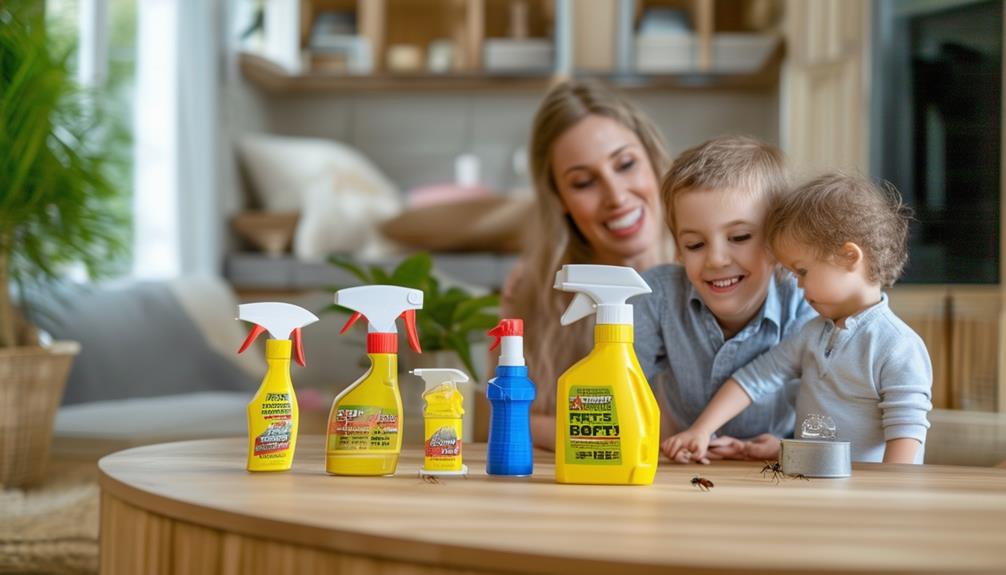House pests are a common nuisance that many homeowners encounter. Among the various pests that can invade our homes, cockroaches are often considered the most common and persistent. These resilient insects have adapted to survive in a wide range of environments and are known for their ability to reproduce rapidly, making them a formidable foe for homeowners seeking to maintain a pest-free living space.
Cockroaches, scientifically known as Blattodea, are a group of insects that have been around for millions of years. They are attracted to warm and moist environments, making our homes an ideal habitat. Cockroaches are nocturnal creatures, preferring to hide in dark and secluded areas during the day and emerging at night to search for food and water. Their diet is varied, consisting of both organic and inorganic materials, including decaying matter, food crumbs, and even glue.
This adaptability, combined with their ability to survive without food for long periods, allows cockroaches to thrive in a wide range of conditions and climates. In the following article, we will delve deeper into the behavior and habits of cockroaches, explore methods for identifying signs of an infestation, discuss prevention techniques, and provide natural remedies and DIY solutions for cockroach control.
Additionally, we will address when it is necessary to seek the assistance of a professional exterminator to effectively deal with cockroach infestations.
Understanding the Behavior and Habits of Cockroaches
The behavior and habits of cockroaches are important to understand in order to effectively control and eliminate this common household pest.
Cockroaches have a wide range of food preferences, making them highly adaptable and capable of surviving in various environments. They are known to consume almost anything, including decaying organic matter, garbage, grease, and even other insects.
Their ability to feed on such a wide variety of food sources allows them to thrive in both urban and rural areas, making them a persistent pest in many homes.
In addition to their diverse food preferences, cockroaches also have unique breeding habits that contribute to their rapid reproduction and population growth. Female cockroaches produce egg cases known as oothecae, which contain multiple eggs. These egg cases are often hidden in secluded areas, such as cracks and crevices, making them difficult to detect.
Once the eggs hatch, young cockroaches, or nymphs, emerge and go through several molting stages before reaching adulthood. The nymphs are smaller and lighter in color compared to adult cockroaches, and they require regular access to food and water to survive and develop.
Understanding the breeding habits of cockroaches can help homeowners identify potential areas of infestation and take appropriate measures to control their population.
Identifying signs of a cockroach infestation can be crucial in preventing further spread and damage.
Identifying Signs of a Cockroach Infestation
Cockroach infestations can be identified by various signs that indicate their presence within a dwelling. These signs include:
- Fecal droppings: Cockroaches leave behind small, cylindrical droppings that resemble coffee grounds or black pepper. These droppings can often be found in areas where cockroaches hide or travel, such as behind appliances, in cabinets, or along baseboards.
- Smear marks: Cockroaches have an oily body that leaves behind smear marks on surfaces they come into contact with. These marks may appear as dark streaks or smudges and can be found along walls, floors, or countertops.
- Unpleasant odor: Cockroaches emit a distinct, musty odor that becomes more noticeable as the infestation grows. This odor is often described as a strong, oily smell and can be particularly evident in areas where cockroaches congregate.
Cockroach infestations not only pose a nuisance but also present various health risks. These pests can transmit disease-causing pathogens and trigger allergies and asthma in susceptible individuals. Additionally, cockroach droppings and shed skin can contaminate food and surfaces, increasing the risk of bacterial infections.
Given the potential health hazards associated with cockroach infestations, it is crucial to employ effective cockroach removal methods and implement prevention techniques to keep these pests out of your home.
Prevention Techniques to Keep Cockroaches Out of Your Home
To effectively prevent cockroach infestations, implementing proper sanitation practices is crucial. For example, regularly cleaning and sealing cracks and crevices in your home can limit potential entry points for these pests, reducing the likelihood of an infestation.
Cockroaches are attracted to food and water sources, so keeping your home clean and free of crumbs, spills, and standing water is essential. Additionally, storing food in airtight containers and promptly disposing of garbage can prevent cockroaches from finding a readily available food source. By maintaining a clean and dry environment, you can significantly decrease the chances of a cockroach infestation.
In addition to sanitation practices, there are several effective cockroach deterrents that can help keep these pests out of your home. Using cockroach baits and traps can be an effective method for controlling an existing infestation and preventing future ones. These baits contain insecticides that cockroaches ingest and then carry back to their nests, effectively eliminating the entire colony. Furthermore, applying insecticides to cracks, crevices, and other potential hiding spots can provide an additional barrier against cockroaches. Regularly inspecting and repairing any plumbing leaks or moisture issues can also deter these pests, as they are attracted to damp environments.
By implementing these cockroach prevention methods and effective deterrents, you can significantly reduce the risk of a cockroach infestation in your home.
Transitioning to the subsequent section about ‘natural remedies and DIY solutions for cockroach control,’ it is important to explore alternative methods that can complement or replace chemical-based approaches.
Natural Remedies and DIY Solutions for Cockroach Control
Implementing natural remedies and DIY solutions can provide alternative and potentially more environmentally friendly methods for controlling and preventing cockroach infestations in your home. These methods can be effective in deterring cockroaches and reducing their population without the use of harsh chemicals.
Here are three natural remedies and DIY solutions for cockroach control:
- Essential oils for cockroach control: Certain essential oils, such as peppermint oil, lavender oil, and tea tree oil, are known to repel cockroaches. These oils can be mixed with water and sprayed around areas where cockroaches are likely to hide, such as cracks, crevices, and entry points. The strong scent of these oils acts as a deterrent for cockroaches, making them less likely to enter your home.
- Homemade cockroach traps: Making your own cockroach traps can be an effective way to catch and eliminate these pests. One simple method is to create a trap using a jar or a bowl filled with a mixture of water and sugar. The sweet smell of the sugar will attract the cockroaches, and they will get trapped in the liquid when they try to reach it. Another option is to use a mixture of borax and powdered sugar as bait. Cockroaches are attracted to the sugar, but the borax acts as a poison that kills them.
- Seal cracks and crevices: Cockroaches can enter your home through small cracks and crevices. By sealing these entry points, you can prevent them from gaining access to your living spaces. Use caulk or weather stripping to seal gaps around windows, doors, pipes, and other openings. This will not only help keep cockroaches out but also improve the energy efficiency of your home.
Implementing these natural remedies and DIY solutions can help control and prevent cockroach infestations in your home. However, if the infestation is severe or persists despite your efforts, it may be necessary to call a professional exterminator for assistance in eradicating the problem completely.
When to Call a Professional Exterminator for Cockroach Infestations
Engaging the services of a professional exterminator becomes imperative when faced with severe or persistent cockroach infestations. While natural remedies and DIY solutions can be effective in controlling small infestations, they may not be sufficient in cases of severe infestations. Signs of a severe cockroach infestation include a large number of live cockroaches, egg cases, and droppings found throughout the house. Additionally, a strong and unpleasant odor may be present, indicating the presence of a large population of cockroaches. In such cases, it is crucial to call a professional exterminator who has the expertise and tools to effectively eliminate the infestation.
There are several benefits to hiring a professional exterminator for cockroach infestations. Firstly, professionals have a deep understanding of cockroach behavior and can identify the source of the infestation. By locating and treating the source, they can prevent further breeding and reinfestation. Secondly, professional exterminators have access to stronger and more effective pesticides that may not be available to the general public. These pesticides are specifically formulated to target cockroaches and are more likely to eliminate the infestation completely. Lastly, professionals follow strict safety protocols to ensure the well-being of the residents and minimize any potential harm from the pesticides used. They are trained to handle these chemicals safely and provide guidelines for residents to follow during and after the treatment.
When faced with severe or persistent cockroach infestations, it is advisable to seek the assistance of a professional exterminator. They have the knowledge, expertise, and access to effective pesticides necessary to eliminate the infestation and prevent future problems. By hiring a professional, homeowners can ensure a thorough and safe extermination process, providing peace of mind and a pest-free living environment.
Frequently Asked Questions
How do cockroaches reproduce and how fast do they multiply?
The cockroach, a beloved household creature known for its rapid reproduction, has a fascinating life cycle. Factors such as availability of food, temperature, and humidity greatly influence the population growth of these resilient pests.
Can cockroaches transmit diseases to humans?
Cockroaches can transmit diseases to humans, including salmonellosis, typhoid fever, and gastroenteritis. Effective cockroach control methods, such as proper sanitation and sealing cracks, are crucial to prevent health risks associated with infestations.
Are there any specific smells or scents that cockroaches dislike?
Certain smells or scents can repel cockroaches and serve as natural repellents. Incorporating these into cockroach control methods can help deter them. However, further research is needed to identify specific smells that cockroaches dislike.
What are some common mistakes people make when trying to prevent cockroach infestations?
Common mistakes in preventing cockroach infestations include neglecting sanitation, using ineffective DIY methods, and underestimating the importance of sealing entry points. Employing professional pest control services and adopting proactive prevention techniques are essential for successful cockroach management.
Are there any legal restrictions on using certain DIY solutions or natural remedies for cockroach control?
Legal restrictions exist on certain DIY solutions or natural remedies for cockroach control due to concerns about human and environmental safety. The effectiveness debate surrounding these methods emphasizes the need for evidence-based approaches to pest management.





